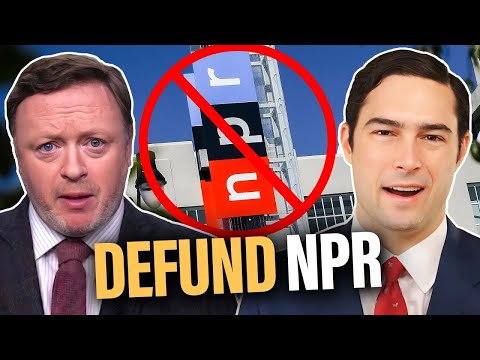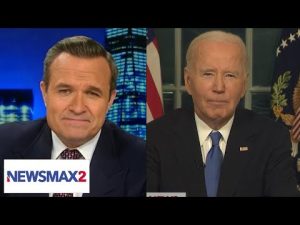**Congressman Brandon Gill: A Fresh Face with a Bold Agenda in D.C.**
In a striking move that has jolted the corridors of Capitol Hill, Congressman Brandon Gill of Texas is quickly making a name for himself as one of the youngest and most dynamic members of the Republican Party. Elected to serve his constituents, Gill is already ruffling feathers and raising eyebrows with his fearless push to defund taxpayer support for left-leaning institutions like NPR and PBS. In an age where political discourse often seems more like a game of dodgeball than a serious discussion, Gill is launching his own offensive in the battle for conservative values.
From the moment Gill took office, he wasted no time in addressing what he sees as an urgent concern for taxpayers: the continued financial support for media outlets that he claims promote radical leftist agendas. For the congressman, the sight of over $500 million of taxpayer money flowing into NPR and PBS each year is more than just an accounting issue—it’s a direct assault on American values and a misuse of public funds. He argues that these institutions have drifted far from their original educational missions and are now vehicles for progressive ideology, targeting young minds with messages that don’t resonate with the values many families hold dear.
Gill’s bold stance comes at a critical time. While attempts to cut or eliminate funding for these institutions have been made in the past, they often ended in a soft landing—complete with Big Bird making an appearance to charm lawmakers into submission. In contrast, Gill and his allies are using a two-seat Republican majority to urge their colleagues to consider the implications of continuing to fund organizations that are actively critiquing their party. With the political landscape more polarized than ever, Gill believes it’s the right moment to galvanize Republican lawmakers around the notion that taxpayer dollars should not be used to support what he sees as an adversarial media.
In addition to his arguments against public broadcasting, Gill emphasizes the fiscal responsibility aspect of his mission. Taxpayers, he argues, should not be on the hook for around a third of NPR and PBS’s budgets. The congressman points out the contradiction in these outlets’ claims—they say they don’t need government funding, yet they panic when it comes under threat. For Gill, this indicates a deeper truth: these institutions rely heavily on public money to survive, making them beholden to the very taxpayers they represent.
The stakes are high, and Gill isn’t afraid to bring the fight to his colleagues across the aisle. He asserts that the financial support for left-wing narratives extends beyond just media; it seeps into various organizations that promote a host of liberal agendas, including issues related to immigration, healthcare, and education. With a laser focus on accountability and transparency, he envisions a future where taxpayer dollars are directed towards initiatives that genuinely benefit the American people, rather than subsidizing ideological opponents.
As the newly minted congressman navigates the complexities of Washington, he has not only identified what he believes are serious issues within funding decisions but also expressed confidence in rallying Republican support around these concerns. With activism rising within the party and a growing base of dissatisfied taxpayers, Gill seems poised to transform conservative promises of the past into action. His commitment isn’t merely theoretical; it’s a battle cry for accountability, making waves in a political landscape where such boldness has often been lacking. As he continues to leverage his platform to highlight the cause of conservative accountability, constituents will undoubtedly be watching to see if he can turn these objectives into tangible results.



